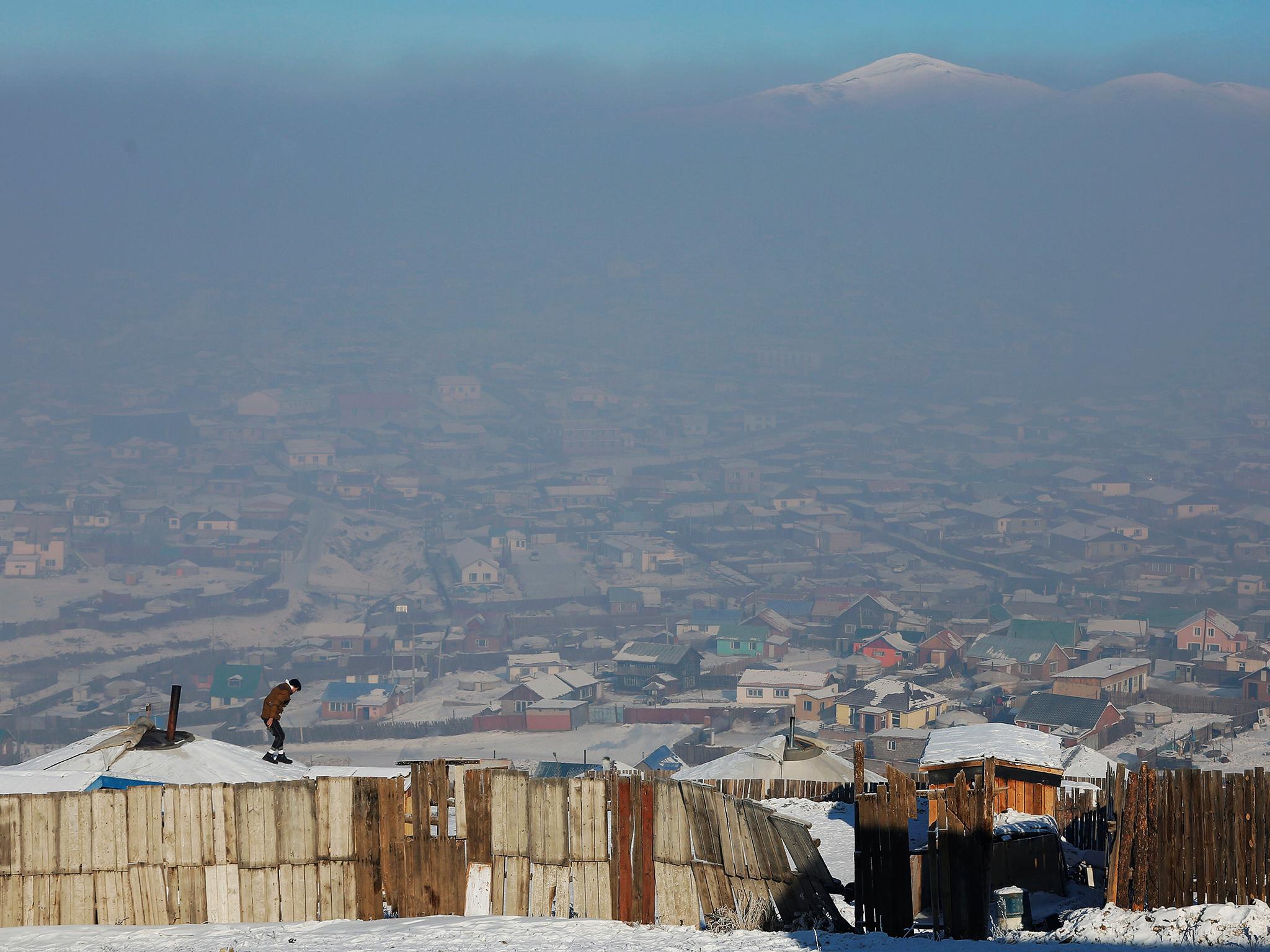Toxic smog in Mongolia's capital worsens amid harsh winter
The acceptable standard, according to the World Health Organisation, is 20-25 micrograms – the reading in Mongolia has been known to hit 1,000 micrograms

Most winter mornings, Setevdorj Myagmartsogt wakes up to a cloud of toxic smog blanketing his neighbourhood in the Mongolian capital Ulan Bator, where the air quality is among the worst in the world. The air, far worse than Beijing's infamous smog, has become even more polluted from the smoke of thousands of chimneys as poor residents burn wood and coal trying to keep warm.
“Because of the air pollution, our health is getting worse,” Myagmartsogt said. “When my two youngest kids go to kindergarten, they get ill every week and they have to stay away ... It's because of the air pollution.”
The capital's total emissions of harmful breathable particles known as PM2.5 surged to 855 micrograms per cubic metre late last month. In comparison, Beijing's air on the same day, measured 70 micrograms. The acceptable standard, according to the World Health Organisation, is 20-25 micrograms. The reading in Ulan Bator has been known to hit 1,000 micrograms. About 80 per cent of the city's smog comes from poor “ger” districts, a sprawl of traditional tents that have sprung up on the edge of the city, said Tsogtbaatar Byamba, director of Mongolia's Institute of Public Health.
Many residents are former herders who migrated to the city after their livestock was wiped out by recent extremely harsh winters.
Life in the Ulan Bator smog
Show all 11As temperatures plunge to -40C, ger residents with no access to the state heating grid burn whatever they can to keep warm. To combat this, the government last month bolstered restrictions on migrants to the capital, allowing in ly those in need of long-term help and people who own homes. But the pollution persists. Hundreds of residents gathered recently in the city's Chinggis Square to protest against the government's inability to tackle the smog. “The air pollution has had real consequences in my life,” said protester Otgontuya Baldandorj. “I was pregnant three times, but I lost all of them. With my fourth child, I had to go to the countryside to get fresh air to give birth.”
Reuters
Subscribe to Independent Premium to bookmark this article
Want to bookmark your favourite articles and stories to read or reference later? Start your Independent Premium subscription today.

Join our commenting forum
Join thought-provoking conversations, follow other Independent readers and see their replies